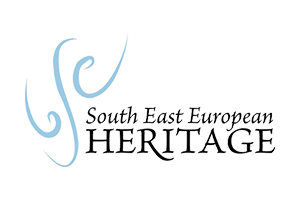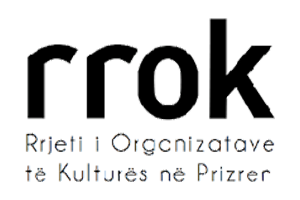The responsible institutions create conditions for waste separation and treatment
The challenges of managing the growing amounts of waste, especially from expanding urban areas, present a significant cost to society as well as putting pressure on the natural environment and climate change. But this discarded material also represents a valuable resource, which can be conserved in the economy by embracing the circular economy approach. For a circular economy it is essential to recycle materials from waste. Energy recovery from waste also plays an important role. The European Union has prioritized circular economy policies. Therefore it is committed to implementing the principles of the waste management hierarchy, which promotes their prevention, reuse and recycling. This requires the development and deployment of eco-innovative solutions.
Meanwhile, for the institutions of Kosovo, at the local and central level, waste management remains a serious challenge, since the appropriate answers have not yet been found, in terms of their collection, transport, recycling, reprocessing and disposal, posing a potential risk to the environment and consequently also for human health.
The latest findings of the National Audit Office show that waste in Kosovo is deposited without any separation, ending up all in one place. This year, ZKA has published the performance audit report on the topic "Collection, treatment and disposal of commercial waste", to assess whether the responsible institutions are doing the collection, treatment and disposal of commercial waste effectively in order to reduce the risks that affect in the environment and the health of citizens, where the subjects of the audit were the Ministry of Environment, Spatial Planning and Infrastructure, the Regional Waste Company "Pastrimi" and "Pastërtia", the Municipality of Ferizaj and Fushë Kosova as well as the Company for Landfill Management in Kosovo . "The conclusion of the audit is that the Ministry of Environment, Spatial Planning and Infrastructure, the municipalities of Ferizaj and Fushë Kosova have failed to create conditions for waste separation and treatment. As a result, the protection of the environment and human health is endangered", the report states, adding that the Ministry has not drawn up policies and procedures for the management of all types of waste. It is mentioned there that for the management of commercial waste there are a number of administrative instructions, but for the most voluminous waste, the regulation for their detailed management has not yet been achieved, as in the case of plastic, paper and cans. "The Ministry of Environment, Spatial Planning and Infrastructure, the municipality of Ferizaj and Fushë Kosova have drawn up plans for waste management, but they have not made an assessment of how far they have managed to realize these plans. As a result, they do not have information on how the issues related to investments in waste treatment plants and the machinery that would serve to separate waste at source have been implemented. Two plants worth over 11 million euros have been built, but they are still not functional. In addition to making it impossible to treat waste according to the proper categorization, the machines continue to depreciate without being used at all," the report reads. At the same time, it is emphasized that the Regional Waste Companies during collection do not separate the waste according to the state catalog for waste, and such a thing is not done by the Landfill Management Company during their disposal, until the categorization of waste for businesses versus that of households is done only for fee matters. "Environmental protection is at risk as sanitary landfills and transfer stations continue to lack integrated permits. Although the process of obtaining the integrated permit started in 2012, which is issued by the Ministry of Environment, Spatial Planning and Infrastructure, this process has not been completed until April 2021, which shows that sanitary landfills and transfer stations continue to deposit waste without meeting the conditions to protect the earth, water and air. The audit conclusions show that the issues related to the management of commercial waste require immediate improvements", is underlined in the report, where the recommendations for the responsible institutions are also addressed.
Meanwhile the 2021 European Commission Report on Kosovo has emphasized that capacity building is required at all levels as well as the determination of objectives and timelines for the main phases of integrated waste management and the circular economy in Kosovo, and has recommended that it be continued to increase the coverage of waste collection, especially by introducing waste separation and recycling, to implement circular economy measures to reduce waste, and to effectively address the issue of illegal landfills.
The legislation in force in Kosovo on waste aims to protect human health and the environment from pollution and risk from waste, through waste management, creating conditions for the prevention and reduction of waste production and its dangerousness, especially through: development of clean technologies and their efficient use; the development and use of products which, by the nature of their production and final disposal, are designed to reduce the harmfulness of waste and the risk of pollution; the development of appropriate techniques for the final disposal of hazardous substances that contain waste with the possibility of processing; waste processing through recycling, reuse or any other process, for the extraction of secondary materials; the use of waste as a source of energy; and remediation of places polluted by waste.
So far, this goal has not been fulfilled, while the measures taken in this direction are limited, therefore a greater commitment is needed from all actors to change the current situation.
The responsible institutions should commit themselves with greater dedication towards the regulation of the infrastructure for waste management, enabling their separation at the source up to recycling or reprocessing, in order to facilitate the embrace of a circular economy approach.
On the other hand, citizens should make maximum efforts to keep the creation of waste to a minimum, doing everything reasonably possible to reuse, recycle or recover; in parallel with the care that waste is not thrown illegally by transporters, as well as reporting to the authorities about irregularities of this nature.




